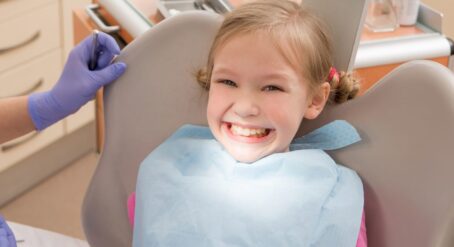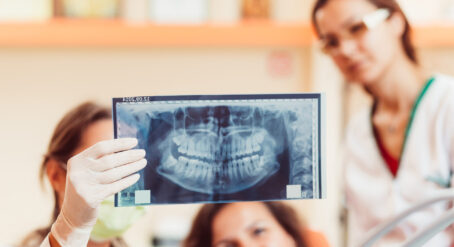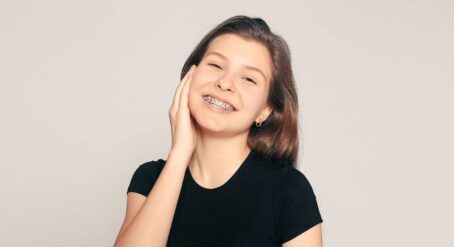Genetic and environmental factors are both important in the development of orthodontic problems. Although genetics plays the major role in dental and facial development, controlling or stopping some environmental factors can help prevent or reduce the severity of some orthodontic issues.
How do I know if my child needs preventative treatment?
The Australian Society of Orthodontists recommend that children have an orthodontic screening examination around the age of 8.
Do not be worried or assume that your child definitely requires treatment at this age. It has been reported that only approximately 10% of pre-adolescent patients will truly benefit from early orthodontic intervention. For this minority, carefully considered early orthodontic intervention (also known as interceptive treatment) can have significant advantages.
Appropriately addressing developing orthodontic problems can be very beneficial. Some issues may not be very obvious, therefore it is recommended to have a consultation with a specialist orthodontist even if you haven’t noticed any pressing concerns for your child.
The following list provides a general guideline for when early or interceptive orthodontic treatment may be recommended:
-
Protruding upper front teeth (especially if the upper front teeth are always visible over the lower lip)
- If your child’s teeth do not meet properly when biting (eg upper front tooth bites behind a lower front tooth)
- Protruding and/or asymmetric lower jaw position
- Pain when biting teeth together (eg pain on the gums or the roof of the mouth)
- If your child’s jaw shifts forward or to the side when closing into the biting position
- If your child is older than 5 years and still sucks a thumb or finger
Appropriate orthodontic intervention can prevent damage being done to the front teeth and/or gums and prevent premature wear of the teeth.
The importance of “baby” teeth
Primary or “baby” teeth act as space maintainers for future adult teeth. Losing a baby tooth too early may allow the adjacent teeth to drift into the empty space, reducing the space needed for adult teeth to erupt into. Taking good care of baby teeth is vital to prevent crowding in adult teeth.
If a baby tooth is lost due to trauma or decay, it is important that you see a specialist orthodontist. Your orthodontist will determine whether any treatment is required, or whether closely monitoring the situation is appropriate. The decision will depend on the age of the child, the developmental stage and position of the permanent teeth and the overall facial growth pattern. Many problems, such as undesirable drifting and impact of teeth can be prevented or alleviated with timely diagnosis and good management.
What to expect from your child’s first orthodontic visit
Once you’ve found a specialist orthodontist, they will start by conducting a comprehensive assessment of your child’s face, jaws, mouth and teeth. This may include X-rays to assess the development of the facial structure and permanent teeth.
You will likely leave your first appointment with an idea of what may be required, either now or in the future – including the costs, treatment options and timeframes for all relevant treatment options, how to prevent damage and work with your general dentist to keep your child’s teeth healthy and clean.
Orthodontists are the most qualified and experienced clinicians available to diagnose and treat tooth and jaw alignment problems. Their specialist knowledge base and clinical experience allows them to provide comprehensive advice and to determine the ideal time to treat a specific orthodontic problem, whether it be as a child, adolescent or adult.
The development of a child’s mouth is a fascinating and dynamic process. A specialist orthodontist has the training, experience and expert knowledge to accurately determine what is normal, what is not, and everything in-between. When you see a specialist orthodontist you can be confident that your child is in the best hands.
Explore our Orthodontist Finder Tool to find a specialist near you. They will help you make the best decisions and provide the most reliable and accurate information on how to intercept or prevent orthodontic problems in the future.










Flossing and brushing are even more important than ever for people with braces, so you will want to make sure you have the proper cleaning tools to assist you in maintaining proper oral well being. You may also want to refrain from certain foods while in the process of your treatment, such as ice, popcorn, nuts, gum, corn on the cob, hard candies and sticky candies. Chewy or hard foods can easily damage the braces and loosen bands.